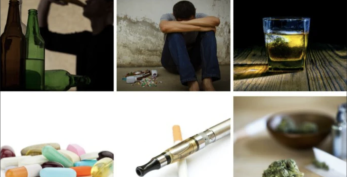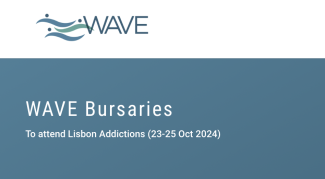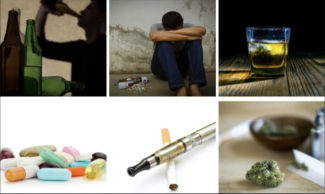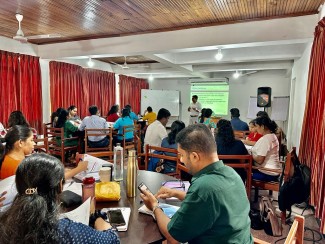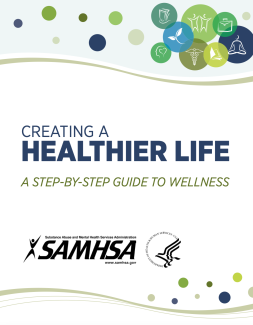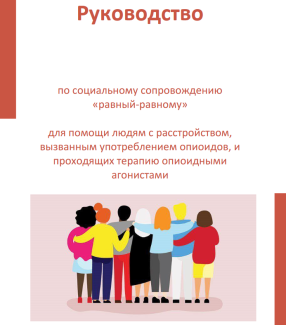
Rechercher
“I’m almost opioid-a-phobic”: family medicine residents’ perceptions of enhancing opioid analgesic and agonist treatment training in a Canadian setting
Purpose
As deaths from the illicit drug poisoning crisis continue to rise in Canada, increasing the number of healthcare professionals qualified to effectively prescribe opioids could be beneficial. The willingness of family medicine...
WAVE Bursaries to attend Lisbon Addictions 2024
Stigmatizing imagery for substance use disorders: a qualitative exploration
“Safer Drug Supply” Measures in Canada to Reduce the Drug Overdose Fatality Toll: Clarifying Concepts, Practices and Evidence Within a Public Health Intervention Framework
In North America, there's a serious problem with drug overdose deaths, mainly due to users encountering very strong and dangerous illegal opioids like fentanyl. Although various efforts have been made in Canada to address this issue, the...
Prevención basada en la evidencia
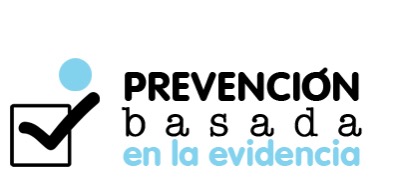
This project is dedicated to promoting evidence-based prevention of alcohol and drug abuse. It serves as a valuable resource for professionals and policy-makers, offering carefully selected, high-quality information. In...
Green List Prevention

The "Green List Prevention" in Germany encompasses a rich array of programmes aimed at preventing various behavioural issues among children and young individuals, including violence, crime, and addictive behaviours. These...
Addiction professionals from Central Asia enhanced knowledge on working with population with special clinical needs
The UNODC Regional Office for Central Asia held a Regional Training of Trainers (ToT) on Course 20 – “Populations with Special Clinical Needs” which took place in person in Dushanbe, Tajikistan on 23-27 October 2023. This course is a part...
Cannabis and amphetamine use among school-going adolescents in sub-Saharan Africa: a multi-country analysis of prevalence and associated factors
Who Helps The Helper? A Skills Transfer Program for Behavioural and Substance Use Professionals
Development of an addiction recovery patient-reported outcome measure: Response to Addiction Recovery (R2AR)
Background:
Recovery, a primary goal of addiction treatment, goes beyond abstinence. It encompasses various aspects that differ among individuals, making it challenging to measure. Traditional assessments in addiction care have focused on...
Substance Use Disorders (SUD) and Type 2 Diabetes: Integration of Evidence-Based Diabetes Care to Promote Quality Health Outcomes
4th National Youth Convention (Impacts & Prevention of Substance Use Among Youth Anti-Drug Poster Competition & Cultural Show) Organized by ISSUP Pakistan in Collaboration with Quaid-E-Azam University, on 6th July, 2023 at Islamabad-Pakistan
4th NATIONAL YOUTH CONVENTION
(IMPACTS & PREVENTION OF SUBSTANCE USE AMONG YOUTH Anti-Drug Poster Competition & Cultural Show)
Organized by ISSUP PAKISTAN in Collaboration with QUAID-E-AZAM UNIVERSITY, on 6th July 2023 at ISLAMABAD...
Systematic Review of Quality Standards in Competency-Based Postgraduate and Continual Addictology Education of Physicians: Study Protocol
BACKGROUND: The role of physicians is crucial in the prevention and treatment of substance use disorders and addiction. The quality of addiction-specific medical education varies, as do postgraduate and continuing medical education...
Development of an addiction recovery patient-reported outcome measure: Response to Addiction Recovery (R2AR)
Background:
Recovery, a primary goal of addiction treatment, goes beyond abstinence. Incorporating broad domains with key elements that vary across individuals, recovery is a difficult concept to measure. Most addiction-related quality...
Training on UTC 03 - Sri Lanka
Psychoactive substance use and substance use disorders (SUDs) remains remain to be a major problem around the world. Which is negatively effect on global health and social and economic functioning. Though people who suffer from SUDs must...
The absence of data on driving under the influence of alcohol in road traffic studies: a scoping review of non-randomized studies with vote counting based on the direction of effects of alcohol policies
Background
Data concerning driving under the influence of alcohol (DUIA) are frequently characterised by their lack of availability, accuracy, or reliability. This inherent limitation poses challenges in the examination of the influence of...
Creating a healthier life: A step by step guide to wellness
The Substance Abuse and Mental Health Services Administration’s (SAMHSA) Wellness Initiative envisions
a future in which people with mental or substance use problems pursue health, happiness, recovery, and a full and satisfying life in the...
Use of Medication for Opioid Use Disorder Among Adults With Past-Year Opioid Use Disorder in the US, 2021
Discussion
Despite guidelines recommending MOUD, approximately 1 in 5 adults with past-year OUD received any MOUD. Furthermore, some groups were substantially less likely to receive MOUD, in particular Black adults, women, those unemployed...
Clinical Supervision in Botswana
Ligne directrice à l’intention des pairs atteints d’un trouble lié à l’utilisation d’opioïdes qui reçoivent un traitement par agonistes opioïdes.
J’ai le plaisir de vous présenter le résultat du travail de notre grande équipe : la troisième version du guide à l’intention des pairs consultants qui travaillent avec des personnes ayant reçu un traitement par agonistes opioïdes.
Dans ce...
Share the Knowledge: ISSUP members can post in the Knowledge Share – Sign in or become a member


